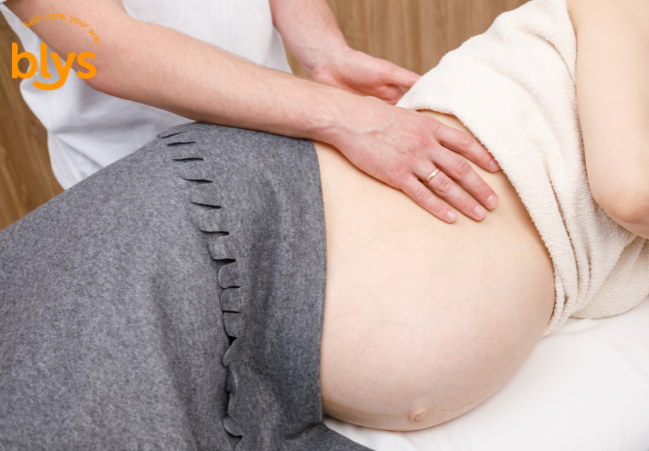
Pregnancy brings a wave of changes that affect your entire body, mind, and lifestyle. As your baby grows, so does the strain on your muscles, joints and posture. That is why having proper support throughout this journey is more than just helpful—it is essential for your overall wellbeing.
Pregnancy massage is not simply a luxury or pampering experience. It has become an important part of prenatal care for many mums-to-be. When performed correctly, it can help relieve common discomforts such as back pain, hip tightness, swelling in the legs and feet, and ongoing stress or anxiety.
This type of massage is designed with safety and comfort in mind. However, not all massage therapists are trained to support pregnant clients. Choosing someone with the right qualifications can make all the difference. So how do you find a therapist who truly understands your needs during pregnancy?
Why You Shouldn’t Settle for Just Any Therapist
Getting a massage during pregnancy might seem like a simple decision, but it is one that requires careful thought. Pregnancy changes your body in significant ways, and only a therapist with the right training will know how to support those changes safely. Unfortunately, not every massage therapist is equipped to do so.
A certified pregnancy massage therapist understands the specific techniques, safety protocols, and positioning adjustments needed to care for a pregnant body. Choosing someone without this background could put you at risk of discomfort or even harm.
Here’s why it matters:
- Not all massage therapists are trained in prenatal care: Pregnancy massage requires an understanding of anatomy, blood flow, and contraindicated pressure points.
- Incorrect techniques can do more harm than good: Using the wrong pressure or touching certain areas can potentially trigger discomfort or even early labour in rare cases.
- Improper positioning may reduce blood flow: Lying flat on your back in later pregnancy stages can restrict circulation and affect both mother and baby.
- A certified therapist prioritises safety and comfort: They use proper support pillows, safe side-lying positions, and adapt techniques for each trimester.
Need a qualified expert you can trust? Book a certified prenatal massage near you with Blys.
Key Qualifications to Look For
When booking a pregnancy massage, qualifications truly matter. Choosing a therapist who understands how to safely support your body during pregnancy helps ensure a positive and effective experience.
The first thing to look for is certification in prenatal massage. This shows the therapist has completed specialised training that focuses on how to care for pregnant clients. From trimester-specific techniques to body positioning and pressure point awareness, this certification is essential.
Experience is also a key factor. A therapist who has worked with clients in early, mid and late pregnancy will be more prepared to adjust their approach depending on your stage and comfort level. This can make a noticeable difference in how your body responds to treatment.
Just as important is the therapist’s understanding of contraindications and safety considerations. A qualified professional will know how to adapt or even postpone a session when necessary. This includes:
- Avoiding pressure points that may stimulate contractions
- Adjusting positioning to protect blood flow and comfort
- Recognising when to refer clients with high-risk pregnancies to their doctor
- Being cautious with clients experiencing swelling or circulation issues
- Knowing when certain techniques or oils should be avoided
Finally, look for verified reviews or client feedback. A history of positive experiences can help confirm you’re choosing someone reliable and trusted. According to the American Pregnancy Association, trained prenatal massage therapists can help reduce anxiety, ease aches and support better overall wellbeing.
Safe Pregnancy Massage Techniques You Should Expect
Pregnancy massage is not just about relaxation—it’s a clinical approach designed to support your changing body while ensuring the safety of both you and your baby. A qualified therapist will take into account your trimester, comfort level and any underlying health concerns when tailoring the session. Everything from your positioning to the techniques used is planned with care.
The way you’re positioned during the massage is one of the most important safety considerations. After the first trimester, lying flat on your back can compress a major vein and reduce blood flow, leading to dizziness or discomfort. A properly trained therapist will position you on your side using specialised pillows and bolsters that support your belly, knees and lower back. This not only improves comfort but also prevents unnecessary strain.
Pressure techniques are adapted as well. Because pregnancy hormones cause joints and ligaments to loosen, therapists avoid aggressive strokes that might normally be used in non-pregnancy massage. Instead, they focus on gentle, therapeutic movements.
Here are five techniques and safety measures you can expect from a certified therapist:
- Side-lying positioning: with full body support to protect circulation and spinal alignment
- Modified pressure levels: to relieve muscle tension safely, avoiding deep tissue work unless medically approved
- Avoidance of certain pressure points: such as those near the inner ankles and wrists, which are linked to uterine stimulation
- Focus on high-tension areas: like the lower back, hips, shoulders and feet to ease common pregnancy aches
- Open communication: throughout the session, ensuring pressure, positioning and techniques are adjusted to suit how you feel in real time
Each of these adjustments is backed by specialised training and an understanding of how the pregnant body responds to touch. When done correctly, pregnancy massage can offer lasting benefits, including improved circulation, reduced swelling, and emotional relief.
To learn more about what goes into a safe and effective prenatal session, visit our pregnancy massage guide.
Questions to Ask Before Booking a Session
Not all massage therapists are trained to work with pregnant clients, so it’s important to ask the right questions to ensure your safety and comfort. Here are the key things to confirm before booking:
1. Are you certified in prenatal massage?
Make sure the therapist has formal training and certification in prenatal massage, including trimester-specific techniques and safety guidelines.
2. What experience do you have with pregnancy massage?
Ask if they’ve worked with clients in your stage of pregnancy. A therapist experienced in second or third trimester care will be better prepared to tailor the session to your needs.
3. How is the massage setup modified for pregnancy?
A professional should explain how they use side-lying positioning, support pillows and pressure adjustments to ensure your safety and comfort throughout the session.
4. Do you have current liability insurance?
This is a sign of professionalism and accountability. Avoid therapists who aren’t covered.
5. What is your rescheduling or cancellation policy?
Pregnancy can be unpredictable. Flexible booking options can make things easier when plans change unexpectedly.
Asking these questions helps ensure you’re choosing a therapist who is properly trained, supportive and committed to your wellbeing.
How to Find a Prenatal Massage Therapist Near You
Choosing the right prenatal massage therapist ensures you receive care that’s both safe and effective during your pregnancy. Knowing where to look—and what to verify—can make all the difference when selecting a provider.
A reliable first step is to consult national professional bodies that certify therapists. In the United States, the National Certification Board for Therapeutic Massage & Bodywork (NCBTMB) provides board certification, which represents the highest credential in the profession. Board certification demonstrates that a therapist has met rigors standards in education, ethics, safety, and professional practice, including passing exams, background checks, and ongoing continuing education.
You can also review listings from organisations like the Associated Bodywork & Massage Professionals (ABMP) or check your state’s licencing board. These platforms allow you to verify qualifications, specialisations and good standing—helping to ensure your therapist is properly trained in prenatal care.
Another smart option to consider is mobile massage therapy with Blys. Travelling while pregnant can be physically draining. Mobile therapists offer the convenience of in-home care, letting you relax in your own space without extra effort.
Red Flags to Watch Out For
Not every massage therapist is equipped to handle the specific needs of pregnancy. While some may offer prenatal services, that doesn’t always mean they’ve received the proper training or understand how to work with a pregnant body safely. Spotting a few key warning signs can help you avoid an uncomfortable—or even risky—experience.
Here are common red flags to be aware of:
- No mention of pregnancy-specific training: If a therapist doesn’t clearly state they are certified or trained in prenatal massage, that’s a sign to proceed with caution. Pregnancy massage involves specialised knowledge of anatomy, trimester-specific techniques and safety protocols.
- Lack of proper support equipment: Therapists should use side-lying positioning and have pillows or bolsters on hand to support your body. If they expect you to lie flat on your back or don’t adjust the setup for your pregnancy, that’s not a good sign.
- Promises to induce labour or stimulate pressure points: Be wary of anyone offering labour-inducing massage or pressure point work without medical clearance. These methods are controversial and should never be done casually or without clinical supervision.
- Vague answers about experience or qualifications: If a therapist struggles to explain their background or gives unclear responses when you ask about pregnancy experience, it’s perfectly okay to walk away. Transparency is a must when it comes to your care.
Taking the time to ask the right questions and look for these signs gives you peace of mind and protects your wellbeing. A truly professional therapist will always welcome your concerns, communicate openly and tailor their approach to ensure you feel safe, respected and supported throughout every session.
Confidence Comes with the Right Choice With Blys
When it comes to massage during pregnancy, choosing the right therapist is not just a matter of preference—it’s a decision that directly affects your safety, comfort and peace of mind. A qualified professional understands how to work with your body’s changes and tailors each session to meet your evolving needs.
There’s no harm in asking questions or taking the time to check credentials. In fact, doing so shows that you value your wellbeing and want the best care possible for yourself and your baby. Your comfort should never be an afterthought—it should be a priority from the moment you book.
Every pregnancy is different, which is why personalised care matters. Whether you’re in your first trimester or approaching your due date, a properly trained therapist will know how to support you at every stage.





